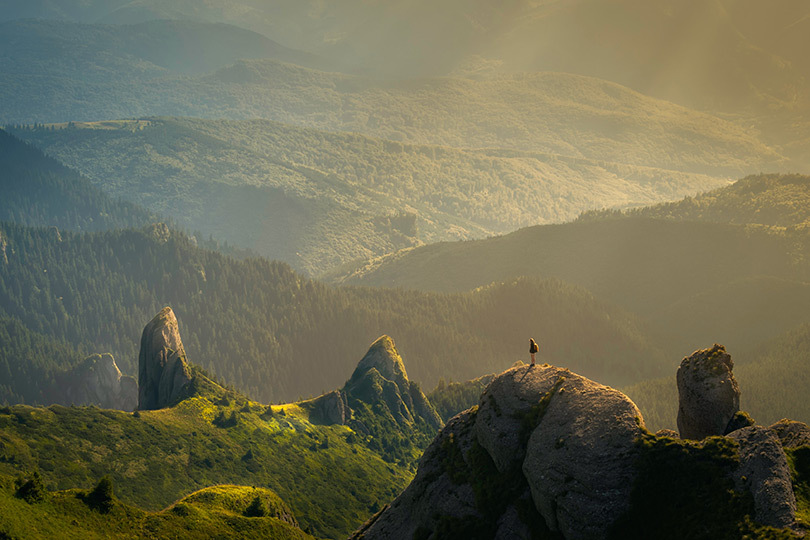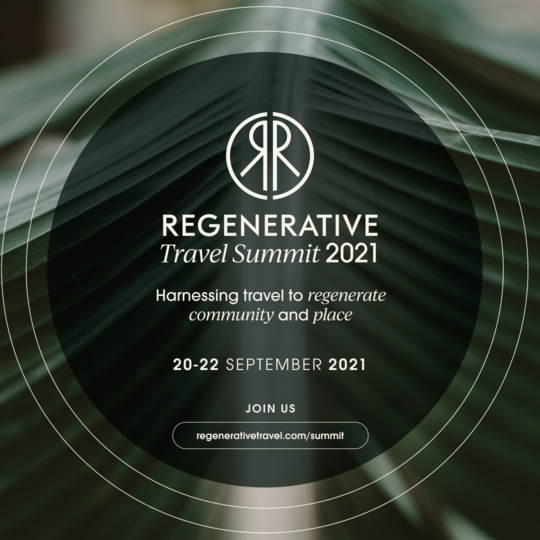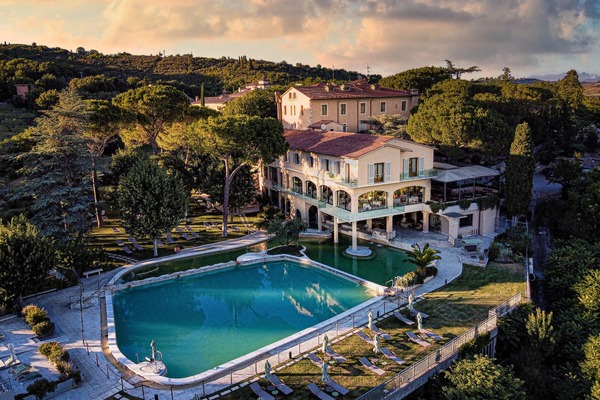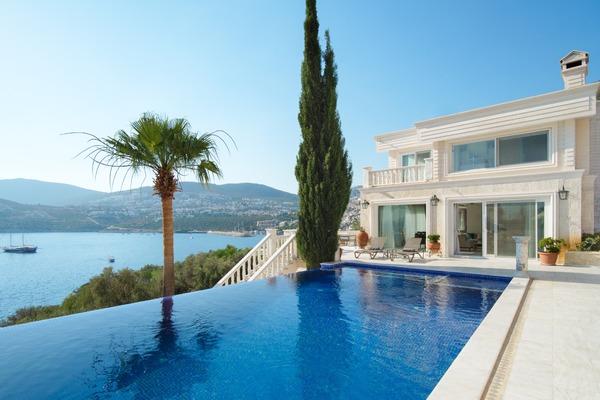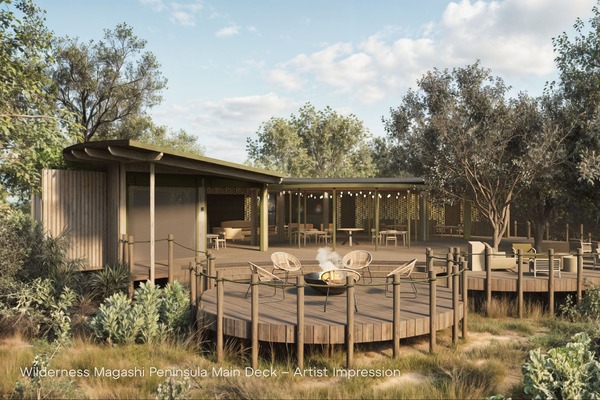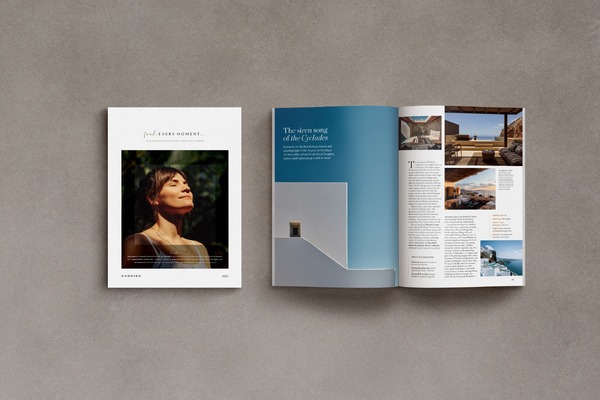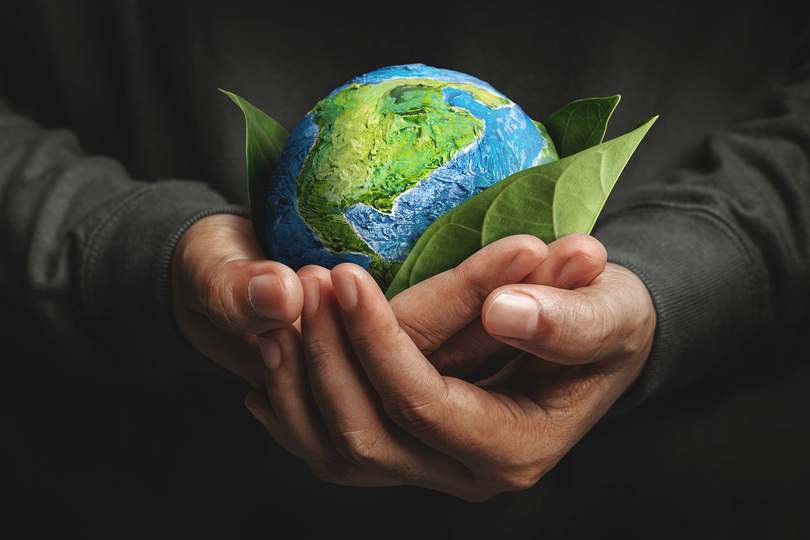Industry urged to push towards adopting regenerative travel models
Companies should be assessing the role of tourism in helping to regenerate nature, and looking at how hospitality can embrace regenerative principles as travel continues to restart in the wake of the pandemic.
Delegates at The Regenerative Travel Summit heard that looking at ways of rebuilding for the future with the ideas of regeneration and understanding global connectivity in nature in mind were going to be even more important as the world reopens.
“We believe regenerative travel is about creating better conditions of life for the environment and the community, and that it has the capacity to inspire and transform everywhere,” said Amanda Ho, co-founder of Regenerative Travel, as she opened the event. “The concept is about moving away from the predictable and becoming more engaged in the local eco-system and communities.”
The online conference is now in its second year and organised by Regenerative Travel, a benefit corporation, travel planning service, and collection of around 50 independent hotels and lodges committed to regenerative hospitality.
The focus for day one was “whole systems thinking” and Jean De Villiers, creator of Chole Mjini, an island treehouse resort off the coast of Tanzania, stressed the importance of tourism, but also the ongoing threat of pandemics as a result of “continued abuse of nature”.
He said the current Covid-19 pandemic was not a “one-off aberration”, saying future ones “could be a lot worse than this one has been”.
“As we encroach more on nature, as we destroy more habitat, as we come into closer contact with wild animals, as the climate changes faster and faster, as the human population increases and densifies, so the probability of future pandemics that can bring about economic crashes increases,” De Villiers said.
“We must prepare for the next one – because it’s a predictable eventuality. Tourism is extremely vulnerable to economic collapse; Covid-19 has destroyed all tourism income. But local community is key in regenerating reefs, mangroves, and ruins, and putting the community, not the tourist, at the centre, is key – [at the same time], it is through economic growth that we have that capacity to engineer change.”
He highlighted how his work at the resort was designed to inspire nature regeneration and positive action among the local community.
“Our work will be based on three core pillars – to collect and propagate as many species and genotypes from corals; to conduct research on methods for cost-effective reef regeneration; and to involve the fishers of the islands within the park in coral propagation and regeneration efforts,” he said. “This will raise awareness of the economic importance of the reefs for their futures, and help them diversify their money-making activities. We can reverse this process of decline.”
Everything is connected
Also speaking at the session on Tourism’s Role in Regenerating Nature, Cyrill Gutsch, founder of Parley for the Oceans, urged people to remember “everything is connected”.
“The interconnectivity between all these regions on this planet – all these different places, but also all the species that live on them – is very obvious. And that shows us that what you do on one side has an effect on the other,” Gutsch said. “Everything is connected and everything floats and connects and goes around the world: pieces of plastic show that in a very drastic way.”
Gutsch founded Parley in 2012 as a non-profit environmental organisation that focuses on protection of the oceans and has become known for its pioneering work on the impact of plastic worldwide.
“Plastic is a symbol of a lot of mistakes we are making on this planet; it is a design failure and it shouldn’t even be here. It’s not ever ready for a circular economy and it needs to go,” he highlighted. “But that’s a very visionary thought in this moment where we’re all running on plastic.”
He said a new strategy was needed, one which he calls AIR – Avoid plastic, Intercept plastic waste, Redesign the material – and urged the hospitality sector to think more along these lines.
“Hotels, resorts, places out there in the wild can be perfect embassies for this strategy,” he stressed. “Because that’s the moment where people reflect, where they have time to look at the objects they’re touching, and where they’re open to learn because they are so confronted with these items that create harm and the beauty that is meant to be protected, and they are emotionally connected often with these places.”
He added it was important to consult the community on how any kind of project might work with regeneration in mind.
“We can’t go into any region, to any place, and feel that we are just implementing a solution – we’re coming from outside and pretending that we know things better than people on the ground,” he said. “The way we operate at Parley is first of all on cross intelligence. How can we learn from others? How can we connect different groups? And how can we actually unite people with an idea, but also, how can we speak a mutual language?”
Avoiding “saviourism”
Keenan Adams, forest supervisor of the El Yunque National Forest in Puerto Rico, also spoke in the session, saying one key driver for him had been to “use the tourism industry positively to recover and revitalise after natural disasters”.
“Use your economic engine to allow partners to leverage,” he said. “We changed El Portal, our visitor centre to a visitor and community centre. [As a result], this space can now facilitate mass tourism and community. It doesn’t have to be either/or. By allowing people to leverage, you’re providing them space to benefit. We have also asked ourselves how we could use hurricane funding to reform and multiply our positive impact. Every problem, to us, is an opportunity for transformation.”
But he urged the sector to avoid the idea of “saviourism”.
“When setting up these types of programmes – social impact, voluntourism – be careful not to create one based on ‘saviourism’,” he said. “If your trips are more centred around creating experiences for the traveller as a volunteer and not centring on the local community, it could be very problematic.”
The Regenerative Travel Summit takes place 20-22 September and continues to discuss how the travel industry can be designed to thrive and serve as a catalyst for change, generating economic, social, and environmental wealth. See the event website for more details.

